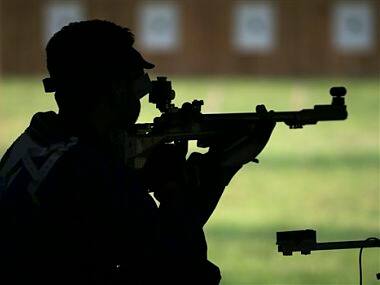Medals are usually a good way to measure a nation’s sporting progress. The more medals a country wins, the better its athletes are relative to everyone else. It’s easy enough to understand. However, with a country such as India, whose sports administrators remain remarkably insensitive about what it takes to win medals on the international stage, even the simple act of preparing for a mega-sporting event cannot be taken the granted. What the athletes have to overcome to win these medals matters too. [caption id=“attachment_1735455” align=“alignleft” width=“380”]  AP[/caption] Barely a week before the games, India didn’t even know who the country would be sending to the Games and wound up paying a $10,000 fine for withdrawing teams at the last minute. This after India’s Sporting Ministry claimed the reason it could not send those teams was a lack of funds. You really can’t make this stuff up. India’s shooters did make it to Incheon but the administrators made it as hard as possible for them regardless. The shooters had to fly half-way around the world and back again because their accreditation cards were not ready. They also had to fend for themselves once they reached South Korea. When customs confiscated Shweta Chaudhry’s gun because the registration number on it didn’t match the form (yes, India couldn’t fill out forms correctly), there was no team manager to sort out the situation because the Sports Ministry had decided managers were superfluous and didn’t send any. Chaudhry had to run around to arrange a replacement gun just so she could compete on the very first day of the Games. Despite all this, India’s shooters won nine medals, one more than they managed at the 2010 Asian Games in Guangzhou. The incremental increase takes on a much brighter hue when seen through the prism of what came before. The men won one fewer medal (six vs. seven) than in 2010 but the women made up for it by winning two more (three vs. one). Four of those medals were won in individual competitions, while five came in the team events. In total, there was one gold, one silver and seven bronze. Jitu Rai was India’s brightest star, shrugging off a personal history of inconsistency like an old coat, to win gold in the 50m pistol on the first day. Exhausted after a string of competitions over the first nine months of this year, Jitu said: “The thought of relaxing for such a long period energised me for the final shot.” He backed his gold up with team bronze in the 10m air pistol to lay claim to being India’s hottest athlete in 2014. The one disappointment was a fifth place finish in the individual 10m air pistol, an event in which he is currently ranked No. 1 in the world. India’s best known shooter, Abhinav Bindra, decided he’d had enough of India’s sports bureaucracy and the punishing schedule of a top-level athlete, and announced his retirement from professional shooting on Twitter. He took two bronze medals with him, including his first individual medal at the Asian Games, and appeared satisfied with his results. The most courageous performance might have come from Chaudhry, who overcame her bureaucratic nightmare to pick up a bronze medal in the 10m air pistol with a replacement weapon. Heena Sindhu was ranked No. 1 in the world in the 10m air pistol earlier this year but failed to make the final round in that event or the 25m pistol event. She did manage bronze in the 25m pistol team event, but India rightly wanted, and expected, more from the 25-year-old. Vijay Kumar, who picked up silver at the 2012 Olympics in the 25m rapid pistol, surprisingly did not compete in rapid pistol individual or team events but managed a silver in the 25m center fire pistol team, alongside Gurpreet Singh and Pemba Tamang. What India should want to do before the 2014 Olympics is make the incremental improvements that can convert bronze to silver and gold. That, however, requires India’s myopic administrators to suddenly see the big picture, and make sure the shooters have no distractions off the field. The odds are not in India’s favour.
India’s shooters did make it to Incheon but the administrators made it as hard as possible for them regardless.
Advertisement
End of Article
Written by FP Archives
see more


)

)
)
)
)
)
)
)
)



